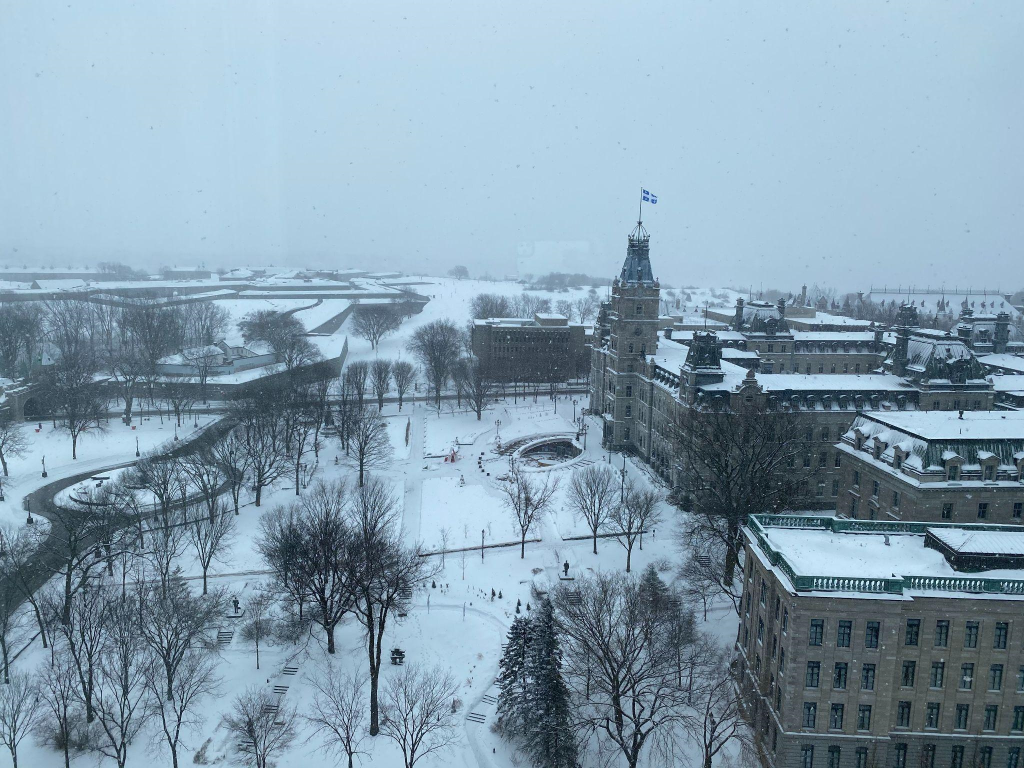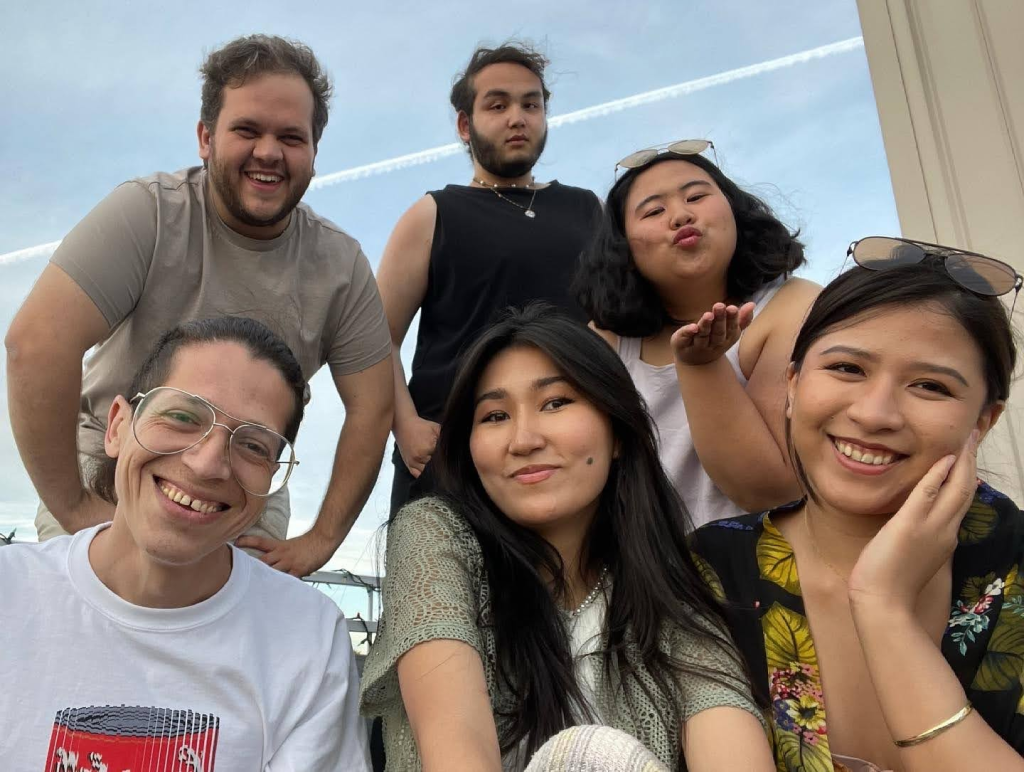
Living in Canada is perhaps a dream for some people. But, as a country whose primary language is French (in addition to English), one has to be prepared for a culture shock, especially if they live in Quebec Province. Hana Sambur, who spent years in the United States and is a fluent English speaker, shares her struggle living in Montreal, a city in Quebec, when she was doing her master’s study in Information Studies at McGill University. When she moved to the city, she found it extremely difficult to immerse herself into Canadian society, apart from the challenges of living amidst pandemic, due to her limited proficiency in French.
***
These past two years have been the toughest in everyone’s lives as a collective, including mine. Personally, I never would have expected the trajectory of my life to go this way. But after all the changes, it’s safe to say I’ve learned several things. I summed them up in two parts.
Lost in Translation
I now live in the city of Montreal, in the province of Quebec, Canada. I recently graduated from McGill University, an English-speaking university in Montreal. I’ve been an international student before in the United States. There, I learned basic things to prepare for my personal and professional life as an independent adult. But the US was much simpler since everyone spoke English: a language I understood in full context.
Nothing prepared me to experience student life in Canada–let alone French Canada. The province of Quebec is a different animal than the rest of Canada. English-French bilingualism is the ideal in this place, albeit a fantasy in practice. In reality, after living here for two years, most people on the street would scoff at you the second you expressed your inability to speak French.
Nicer Quebecois people will immediately change their language of conversation to English, which is helpful but discouraging as someone trying to learn French properly. Terms like Francophone and Anglophone came up to divide French speakers and English speakers in the province. I won’t lie, this was a huge, depressing culture shock for me.

In Montreal, I had to get rid of a lot of expectations that I experienced in the US. First, it is much more difficult to make friends who don’t speak your language, but it isn’t impossible. Since I go to McGill University, an English university in Montreal, most people choose to stay in the McGill bubble and discourage themselves from branching out to meet French Canadians. Friends also come and go as a result of this, most of them leave because of their inability to adapt to French-Canadian society.
All this might seem discouraging, but a beautiful silver lining appeared when I pushed my comfort zone and socialized through apps like Bumble BFF and Meetup, looking for friends around the city. I found several people who happen to be French Canadians or immigrants who are trying to fit into French Canadian society like I am. The Indonesian community has also been kinder and more open to accepting Indonesians from more diverse backgrounds, as they are used to taking in scholarship recipients who chose to go to school in Montreal.

Second, unlike other English-speaking areas, there really is no such thing as speaking perfect English in Montreal, and the pressure to speak properly. As long as the other party understands what you’re trying to communicate, it is enough. There are no expectations to properly speak any language in this city, and I think it’s a beautiful thing. More areas and countries should implement this acceptance of multilingualism.
Finally, in Canada, you are not considered “bilingual” if you can’t speak French. This felt like a slap in the face for me. Initially, I assumed that if I went to an English university, only spoke English, and learned French while working towards my Masters’ Degree, I would assimilate and be uniquely integrated in no time. This proved to be a much more difficult process than I expected. French is a difficult language with lots of gendered tenses and verbs; a concept that I am unfamiliar with, knowing Indonesian, English, and Mandarin Chinese as more gender-neutral languages.
Opportunities are much more limited when you can’t speak French in Canada, especially if you specialize in communications and media. Regardless, I am still practicing French, however imperfect or stupid I might sound because, at the end of the day, I want to be integrated into Canadian society permanently, and I chose to be in Canada for a better future.
Stuck in Solitary
Had the global pandemic not happened, the article would have stopped here. Yet I find myself still living in Montreal, still complying with every pandemic measure the government threw at the people.

The feeling of isolation is admittedly unbearable, with depressing cold winters spent in solitary and the following two summers no longer feeling like Montreal before the pandemic. It already feels isolating knowing that you’re a minority for being an Anglophone–a word French Canadians use for people who only know English, or people who prefer speaking English over French–let alone knowing you’re isolated in a global pandemic, with travel restrictions always popping up in your smartphone notifications.
Online lectures differed heavily from my first semester of studying at McGill in person. It was challenging at first to manage a separation between time spent relaxing at home and time spent working on the computer. Paying attention to online lectures was a special pain made in hell by this pandemic.
Luckily, the mute audio/video button exists on Zoom. I don’t know how I was going to complete my classes if it weren’t for those two options. I managed to overcome the dread of online lectures through proper time management and countless to-do lists integrated between my computer and my phone. I even had to switch from a laptop to a personal computer to be more home-based. I’ve never done this before, but I’m proud of myself for successfully building a personal computer on my own!
Despite the isolation and alienation, I turned to the things that I’m familiar with to bring me comfort. I talked to God more often through prayer. I reconnected with family members in Indonesia. I networked with the Indonesian community of Montreal, filled with students and recent graduates going through the same pandemic blues in this city. I even became social media manager in the Indonesian Students Society of Canada (PERMIKA) chapter in Montreal.

This pandemic taught me patience amid the chaos. Nothing happens and will happen the way I see it. I became more adaptable and accepting of changes. Eventually, things became better and I was able to graduate from McGill University in Montreal with a masters’ degree in Information Studies, albeit through online graduation.
By the grace of God, I am a living testimony that I survived solitary loneliness in Montreal, a city with limited possibilities for Anglophones. I got back up again, now more improved and nuanced than in the past. I’m still surviving and figuring out the next step in my life. Hopefully, by the time this article gets published I already know what will come next.








